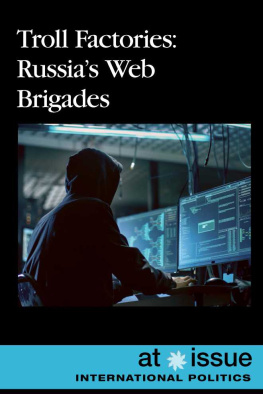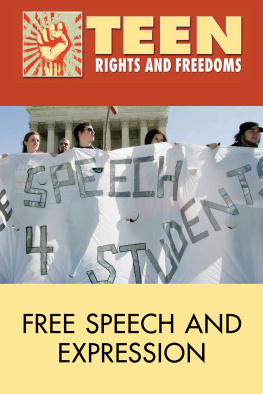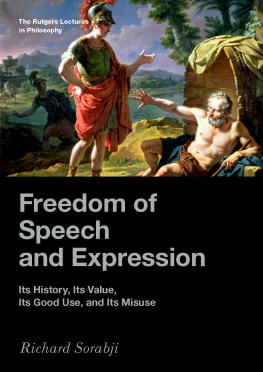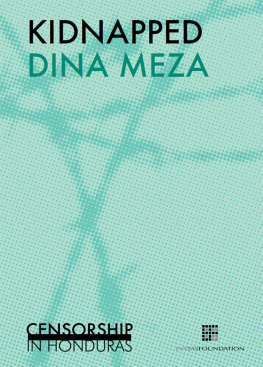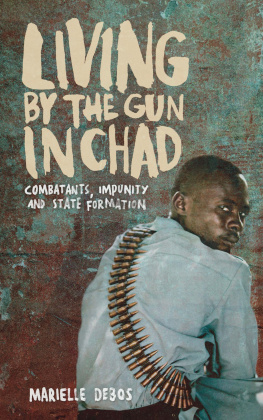
Freedom of Expression in Russias New Mediasphere
In recent years, the Russian government has dramatically expanded its restrictions on the internet, while simultaneously consolidating its grip on traditional media. The internet, however, because of its transnational configuration, continues to evade comprehensive state control and offers ever new opportunities for disseminating and consuming dissenting opinions. Drawing on a wide range of disciplines, including media law, human rights, political science, media and cultural studies, and the study of religion, this book examines the current state of the freedom of speech, freedom of expression, and media freedom in Russia, focusing on digital media and cross-media initiatives that bridge traditional and new media spheres. It assesses how the conditions for free speech are influenced by the dynamic development of Russian media, including the expansion of digital technologies, explores the interaction and transfer of practices, formats, stylistics and aesthetics between independent and state-owned media, and discusses how far traditional media co-opt strategies developed by and associated with independent media to mask their lack of free expression. Overall, the book provides a deep and rich understanding of the changing structures and practices of national and transnational Russian media and how they condition the boundaries of freedom of expression in Russia today.
Marille Wijermars is a researcher at the Aleksanteri Institute, University of Helsinki, Finland.
Katja Lehtisaari is a university lecturer at Media and Communication Studies, University of Helsinki, Finland.
BASEES/Routledge Series on Russian and East European Studies
Series editors:
Sociology and Anthropology: Judith Pallot (President of BASEES and Chair), University of Oxford
Economics and Business: Richard Connolly, University of Birmingham
Media and Cultural Studies: Birgit Beumers, University of Aberystwyth
Politics and International Relations: Andrew Wilson, School of Slavonic and East European Studies, University College London
History: Matt Rendle, University of Exeter
This series is published on behalf of BASEES (the British Association for Slavonic and East European Studies). The series comprises original, high-quality, research-level work by both new and established scholars on all aspects of Russian, Soviet, post-Soviet and East European Studies in humanities and social science subjects.
128 Security, Society and the State in the Caucasus
Edited by Kevork Oskanian and Derek Averre
129 Memory, the City and the Legacy of World War II in East Central Europe
The Ghosts of Others
Uilleam Blacker
130 US Foreign Policy Towards Russia in the Post-Cold War Era
Ideational Legacies and Institutionalised Conflict and Co-operation
David Parker
131 Tolstoys Political Thought
Christian Anarcho-Pacifist Iconoclasm Then and Now
Alexandre Christoyannopoulos
132 Azerbaijan and the European Union
Eske Van Gils
133 Freedom of Expression in Russias New Mediasphere
Edited by Marille Wijermars and Katja Lehtisaari
For a full list of available titles please visit: https://www.routledge.com/BASEES-Routledge-Series-on-Russian-and-East-European-Studies/book-series/BASEES
First published 2020
by Routledge
2 Park Square, Milton Park, Abingdon, Oxon OX14 4RN
and by Routledge
52 Vanderbilt Avenue, New York, NY 10017
Routledge is an imprint of the Taylor & Francis Group, an informa business
2020 selection and editorial matter, Marille Wijermars and Katja Lehtisaari; individual chapters, the contributors
The right of Marille Wijermars and Katja Lehtisaari to be identified as the authors of the editorial material, and of the authors for their individual chapters, has been asserted in accordance with sections 77 and 78 of the Copyright, Designs and Patents Act 1988.
All rights reserved. No part of this book may be reprinted or reproduced or utilised in any form or by any electronic, mechanical, or other means, now known or hereafter invented, including photocopying and recording, or in any information storage or retrieval system, without permission in writing from the publishers.
Trademark notice: Product or corporate names may be trademarks or registered trademarks, and are used only for identification and explanation without intent to infringe.
British Library Cataloguing-in-Publication Data
A catalogue record for this book is available from the British Library
Library of Congress Cataloging-in-Publication Data
A catalog record has been requested for this book
ISBN: 978-1-138-34665-9 (hbk)
ISBN: 978-0-429-43720-5 (ebk)
Typeset in Times New Roman
by codeMantra
This book is the final outcome of the research project Russian Media Lab: Freedom of Speech and Critical Journalism in Russia, coordinated by the University of Helsinkis Aleksanteri Institute as part of the Russia HUB Helsinki activities and funded by the Helsingin Sanomat Foundation (20162019). The editors would like to thank Peter Sowden, our commissioning editor at Routledge, for his enthusiasm for the project as well as Birgit Beumers and the anonymous reviewers for their valuable feedback. We are particularly indebted to Janne Suutarinen, our research assistant, whose help in preparing the manuscript for publication made all the difference.
The transliteration of Russian follows the modified Library of Congress system throughout the book, while customary English spellings are maintained for familiar terms, places and personal names.
Stephen Hutchings is professor of Russian studies at the University of Manchester and a fellow of the UK Academy of Social Sciences. He has published six monographs and five edited volumes on various aspects of Russian literary, film and media studies, including Russian Modernism: The Transfiguration of the Everyday (CUP, 1997), Russian Literary Culture in the Camera Age: The Word as Image (Routledge 2004), Television and Culture in Putins Russia: Remote Control (Routledge, 2009; co-authored with Natalia Rulyova) and Nation, Ethnicity and Race on Russian Television: Mediation Post-Soviet Difference (Routledge 2015; co-authored with Vera Tolz). He has held seven prestigious research grants with the UKs Arts and Humanities Research Council since 2000. He was president of the British Association for Slavonic and East European Studies from 20102013 and is currently associate editor of the Russian Journal of Communication. ORCiD: Orcid.org/0000-0003-2086-3244
Jnis Juzefovis is a research fellow at the University of Tartus Institute of Social Studies, where he is currently working on a project examining the civic identity and transnational media practices of the Russian-speaking population in the Baltic countries of Latvia and Estonia at times of geo-political uncertainty. He holds a PhD in media studies from the University of Westminster. He is the author of the book




